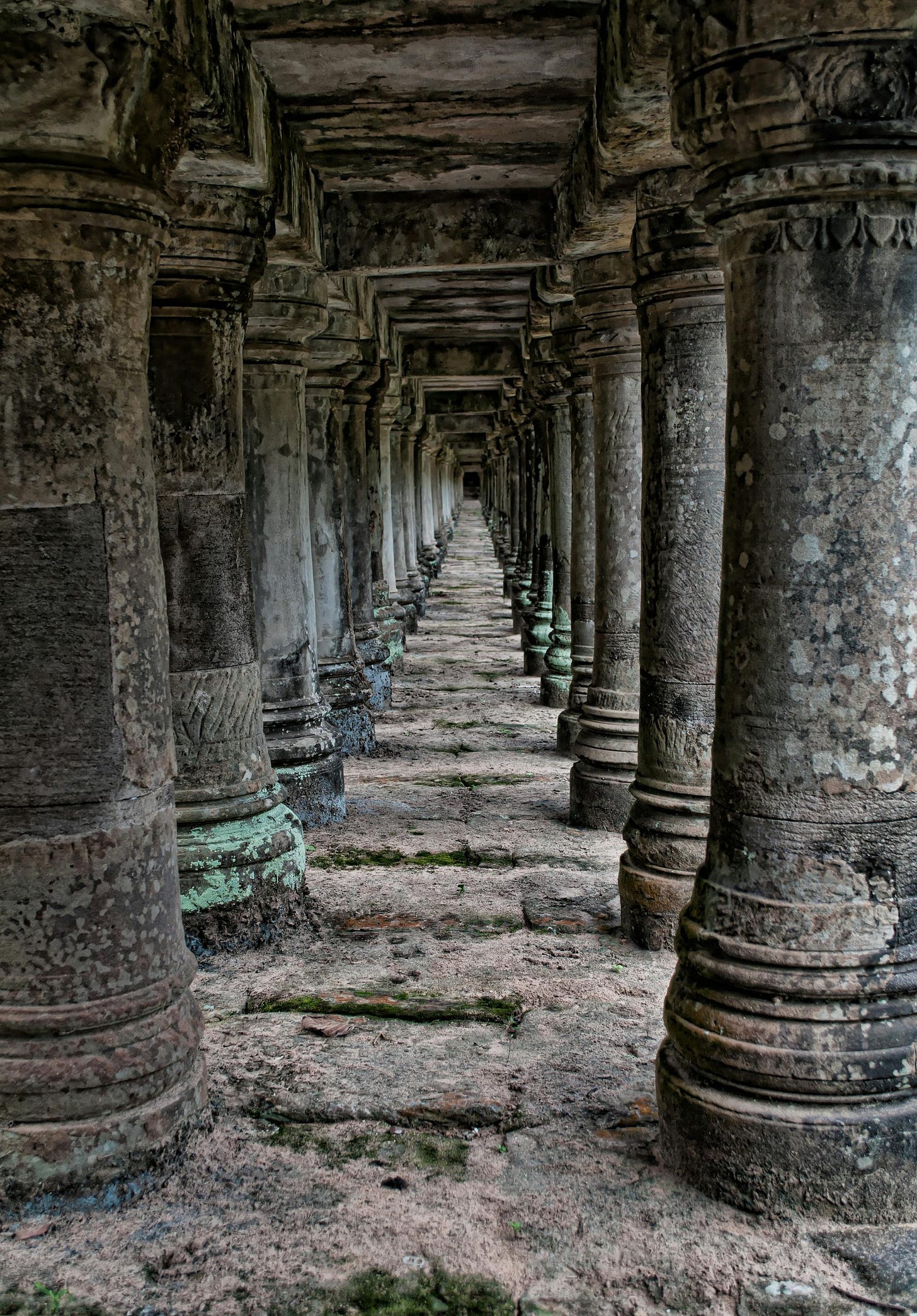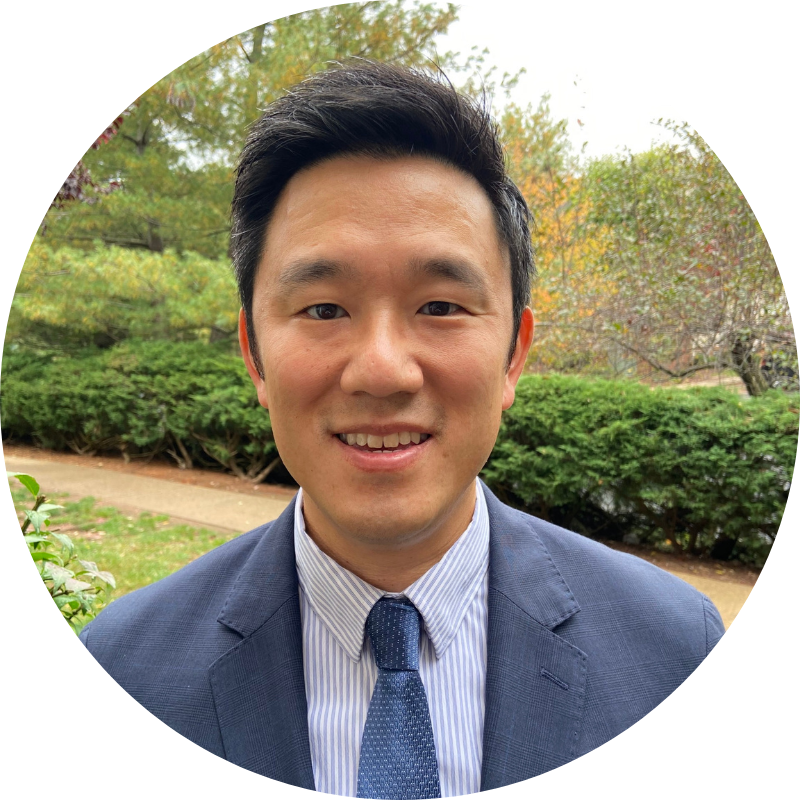Transpacific Christianity: Three Pillars for Doing Asian American Theology
The Future of Asian American Theology, Part I

By Dr. David C. Chao, Director of the Center for Asian American Christianity. This article is the first of Dr. Chao’s five-part series on the future of Asian American Theology.
Asian Americans constitute the fastest-growing racial demographic in the US. Moreover, roughly one-third of Asians in the US are Christian. Since 1965, immigrants from the majority world have been changing the face of US society and, by extension, Christianity in the US. Asian American Christian theology tackles these important religious and theological developments and thus occupies a critical space in contemporary theological discourse.
In this series of essays, I chart a vision for doing Asian American theology that engages with the historical, biblical, and socio-political contexts of Asians in America. This vision is grounded in the history of Christian thought, particularly within Asian America, a robust engagement with Asian American biblical theology, and the incorporation of Asian American styles of inferential reasoning across ethnicities, generations, and geographies. I cast this vision for Asian American theology over the course of five essays, beginning with this overview essay.
My Journey with the Swiss Theologian Karl Barth: What does Basel have to do with Chinatown?
My first area of research has been and continues to be in the theology of Karl Barth. Barth is the German-language Swiss theologian whose writings profoundly shaped European Christianity's resistance to fascism during World War II. Barth’s Church Dogmatics is a monumental work of theological synthesis, distinguished by its methodological rigor and intellectual depth.
Barth’s twofold focus on the history of Christian doctrine and biblical exegesis offers a provocative case study for Asian American theology. His magnum opus integrates detailed historical engagement with theological figures and traditions, often presented in his "small print" sections, alongside a resolute emphasis on the exegesis of Scripture. Barth’s polemical engagement with liberal Protestantism and Roman Catholic theology reveals his commitment to discerning theological truth within the reception history of Christian thought while critiquing what he saw as deviations from the gospel.
What might Asian American theology glean from Barth’s work that resists Christian nationalism in Germany during World War II while giving witness to the saving message of Christ? His ability to craft a Christian theology, as a Swiss citizen engaged in German language theology, demonstrates that theological systems are not abstract constructions but emerge from the particularities of history, ethnicity, and context. Barth’s legacy underscores the possibilities of grounding Asian American theology in a dual engagement that honors the distinct theological history of Asian American faith and practice and church life while engaging deeply with the biblical text.
History of Asian American Christian Thought: Recovering a Neglected Tradition
The first pillar of this vision for the future of Asian American theology is the development of a rigorous history of Christian thought within Asian America. (See for example the important work being done by Tim Tseng through Fuller’s Asian American Christian History Institute.) While the history of Asian American Christianity has often been narrated in sociological or ethnographic terms, a theological history and history of its theology remain underdeveloped. This neglect not only impoverishes the theological imagination of Asian American Christians but also limits their ability to engage meaningfully with the broader church and society.
It is essential for Asian American theology to undertake a comprehensive exploration of the doctrines, practices, and ecclesial forms that have shaped Asian American Christianity across generations through transpacific migration. Such a project involves documenting how migration, racialization, and cultural adaptation have influenced theological articulation and praxis. This history does not merely recount events but critically assesses how Asian American Christians have engaged with and transformed theological traditions. Conferences, collaborative research initiatives, and publications dedicated to this history are essential to providing the resources necessary for theological reflection and ecclesial formation.
Biblical Theology in Asian America: Expanding the Canonical Imagination
A second foundational pillar for the future of Asian American theology is the construction of a robust Asian American biblical theology. Ecclesially, much Asian American biblical engagement often (and legitimately) centers the Gospels and Pauline Epistles as the canon within the canon, reflecting a theological focus on personal conversion, justification by faith, and evangelism as part of the theological inheritance from the Protestant Reformation. While these texts are indispensable, they represent only part of the rich tapestry of Scripture. To expand the theological imagination of Asian American Christians, biblical theology must engage the whole wisdom of Scripture, including the Hebrew Bible, with particular attention to themes such as land, lament, wisdom, and apocalyptic hope (to name a few).
The topic of land (and dislocation from it) would resonate with the experience of transpacific migration as it also ties to agriculture and indigenous cultures. The theme of lament, for example, resonates with the collective memory of suffering and resilience that characterize Asian American experiences. Wisdom literature offers resources for navigating the complexities of intergenerational and intercultural identity, while apocalyptic texts provide a framework for hope and resistance in the face of systemic injustices. By embracing the full breadth of the biblical canon, Asian American biblical theology articulates a vision of faith that addresses the lived realities of Asian American Christians while challenging the broader church to recover often neglected dimensions of Scripture. This expanded canonical imagination has the potential to deepen and broaden Asian American Christian discipleship.
Asian American Styles of Reasoning: Theological Reflection in Context
The third and perhaps most innovative pillar of this vision for the future of Asian American theology is the incorporation of Asian American styles of reasoning into theological reflection. Drawing on Tala Asad’s and Saba Mahmood’s concept of "discursive tradition," as well as Robert Brandom’s inferentialist philosophy, I propose an approach that emphasizes the contextual and social dimensions of theological reasoning. Asad and Mahmood remind us that religious traditions are not static but are continually reinterpreted within specific social and historical contexts. Similarly, Brandom’s inferentialism highlights the importance of making explicit the premises and contexts that shape reasoning processes.
For Asian American theology, this means foregrounding the racialized and socio-political contexts that inform theological faith and practice. Asian American styles of reasoning account for the material realities of transpacific migration, racial capitalism, and systemic marginalization. This self-reflexive account shows how Asian American Christians arrive at theological inferences that address their unique circumstances. This approach enriches theological reflection and challenges dominant frameworks that often overlook the significance of race and ethnicity in shaping theological discourse.
Toward a Theology of Social Witness
The integration of history, Scripture, and reasoning has profound implications for the spiritual and social witness of Asian American theology. The discipleship, evangelism, and missions of Asian American Christians will be deepened and more faithful to the Spirit of Christ as these three pillars inform it. This approach fosters a theological imagination that is not only intellectually rigorous but also practically transformative, equipping Asian American Christians to engage meaningfully with intra-familial as well as broader societal issues.
Reflecting on the history of Christian thought within Asian American communities and the biblical themes of conversion, lament, and wisdom offers a distinctive approach to social witness and community engagement. Similarly, integrating styles of reasoning that account for racial and economic contexts orients personal Christian discipleship toward prophetic critique of systemic injustices, while offering constructive alternatives rooted in Christian hope.
Institutional Commitments and Lifelong Contribution
Realizing this vision requires sustained institutional investment in the development of resources, programs, and publications that support Asian American theology. Conferences, collaborative projects, and academic programs prioritizing the exploration of these three pillars, create a fertile ground for theological innovation. As a theologian, my commitment is to advance this vision through my scholarship, teaching, and leadership, advocating for an Asian American theology that is grounded in history, enriched by Scripture, and shaped by contextual reasoning.
Conclusion
The future of Asian American theology lies in part with its ability to chart its own course by integrating historical consciousness, biblical depth, and styles of reasoning in ways that deeply resonate and faithfully challenge the lived realities of Asian American faith communities. I humbly submit that the task of Asian American theology requires the development of a distinct voice—one that honors the complexities of transpacific migration, racialization, and intergenerational dynamics; engages the breadth of the biblical canon with cultural and spiritual nuance; and generates practical reasoning for faithful living in diverse contexts. By doing so, Asian American theology not only enriches Asian American Christianity but also contributes fresh perspectives and methodologies to the broader landscape of global Christian theology.
Dr. David C. Chao is director of the Center for Asian American Christianity at Princeton Theological Seminary. He teaches courses related to Asian American theology and organizes programs in Asian American theology and ministry. His research and writing focus on the faith and practice of ordinary Asian Christians in diasporic context as well as the uses of Christian doctrine for liberation, the convergence and divergence of Protestant and Catholic dogmatics, and the theology of Karl Barth. His research on Asian American religious life and politics is funded by The Henry Luce Foundation, the Louisville Institute, and APARRI.
Read more about the director of the CAAC here.





